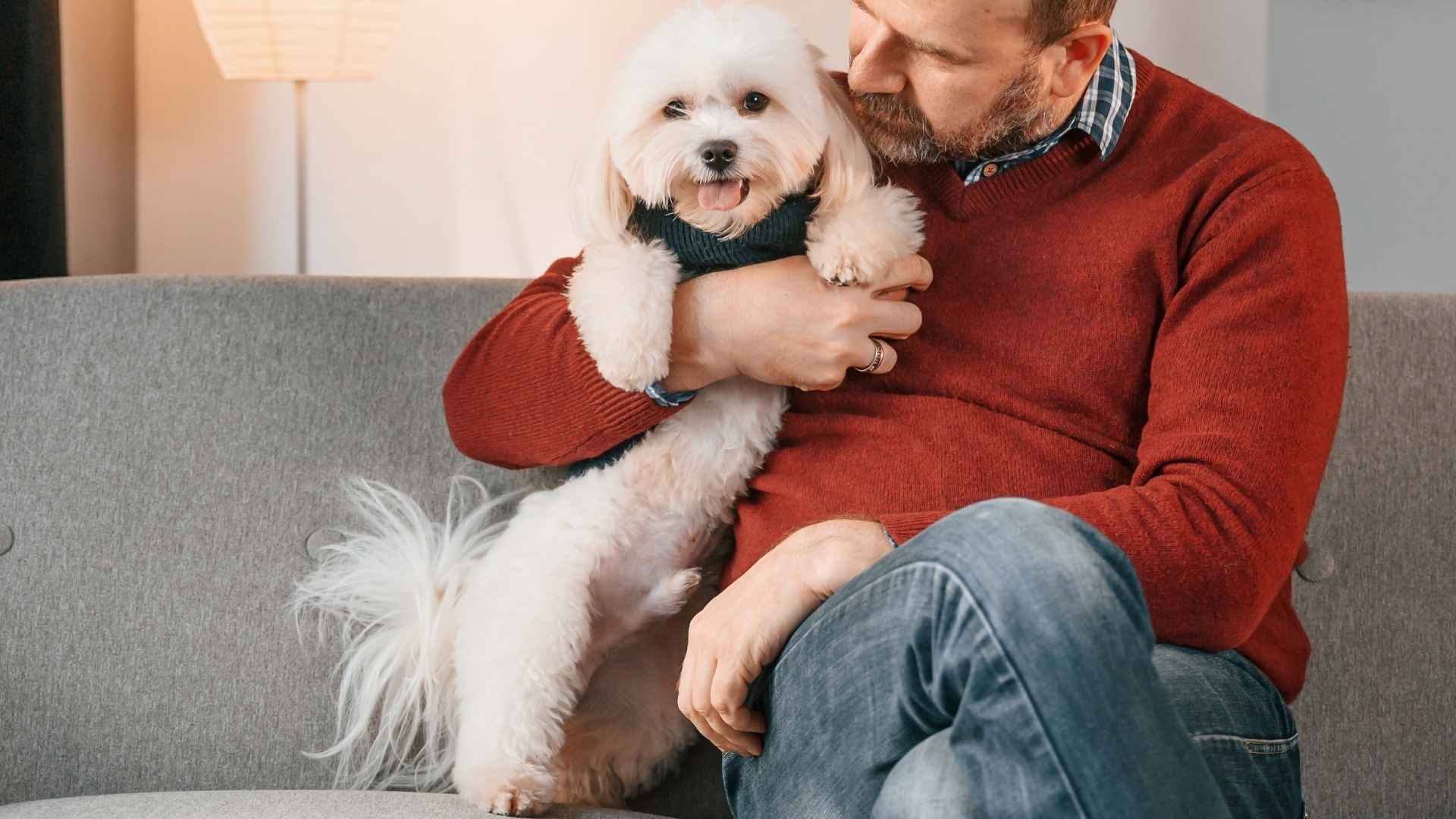Feeling overwhelmed, anxious, or just need a little extra comfort in your life? You’re not alone—and sometimes, the best kind of therapy comes with a wagging tail and a heart full of unconditional love. Emotional support dogs aren’t just adorable companions; they’re little four-legged lifesavers that seem to know exactly when you need a pick-me-up.
But here’s the thing—not every dog is cut out for emotional support work. Some breeds just get it. They’re naturally in tune with human emotions, eager to comfort, and gentle enough to calm your nervous system with a single snuggle.
So, what makes a dog perfect for emotional support? It’s not about size or tricks—it’s all about temperament, sensitivity, and that magical bond they form with their humans.
Ready to meet the breeds that don’t just sit and stay—but stay by your side through life’s toughest moments? Let’s dive in.
Friendly Emotional Support Dog Breeds
1. Golden Retriever
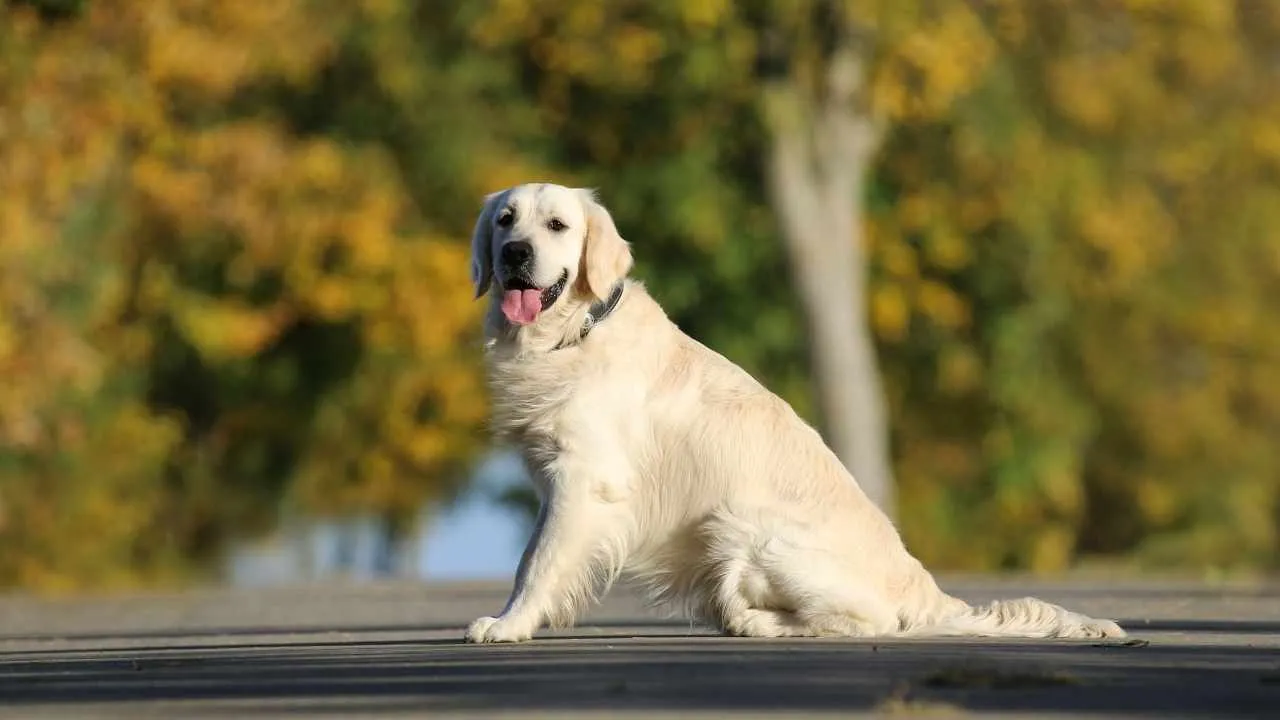
If emotional support dogs had a poster child, it would be the Golden Retriever—no contest. There’s a reason these golden-hearted companions are trusted in therapy rooms, hospitals, schools, and homes worldwide. They’re not just friendly—they’re empathy machines with fur.
What sets Goldens apart? It’s the way they mirror human emotion. Feeling heavy and low? They’ll lie quietly next to you, head resting gently on your leg. Need a little lift? Their tail-wagging joy and loving gaze are basically a serotonin boost in dog form. They don’t just respond to feelings—they absorb them.
One of the most powerful traits they bring to emotional support work is their unwavering patience. Whether you’re overwhelmed, shut down, or feeling scattered, they never rush you. They’re content to simply be there, calm, still, and totally focused on you. In a world that moves too fast, Goldens slow everything down.

They’re also natural-born comforters. GRCC says that their soft fur, warm bodies, and affectionate nuzzles make them ideal for tactile therapy. A hug from a Golden Retriever isn’t just comforting—it’s therapeutic. Ever buried your face in one after a hard day? It’s like the stress just melts.
Golden Retrievers are also incredibly obedient and easy to train, which makes them ideal for task-specific emotional support roles—whether it’s nudging you during a panic attack, retrieving medications, or simply interrupting negative thought spirals with a gentle paw on your leg.
Fun Fact: Golden Retrievers are so in tune with people, studies show they can sense human emotions through facial expressions and voice tone—basically, they’re emotional support pros with built-in radar.
2. Labrador Retriever
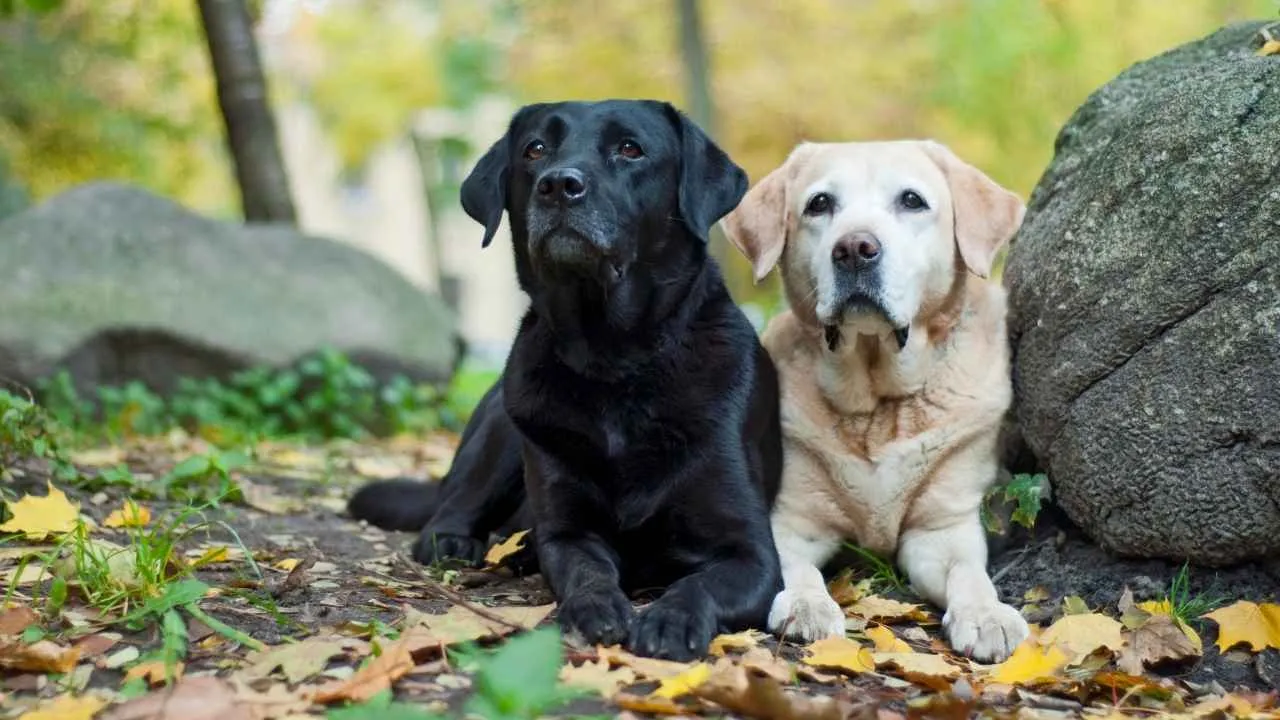
You know that friend who’s always upbeat, never judges, and somehow makes every room feel better just by being in it? That’s the Labrador Retriever in dog form. Labs are emotional support naturals—friendly, intuitive, and endlessly dependable.
What makes Labs truly stand out is their unshakable optimism. They have this way of looking at you like you’re the greatest thing that’s ever existed, especially when you’re feeling like the least lovable version of yourself. That kind of emotional boost? You can’t fake that.
Labs are incredible with consistency. Need a dog that sticks to routines, responds reliably to emotional support cues, and never throws mood swings your way? This breed is your ride-or-die. They thrive on structure, which helps you stay grounded, too.
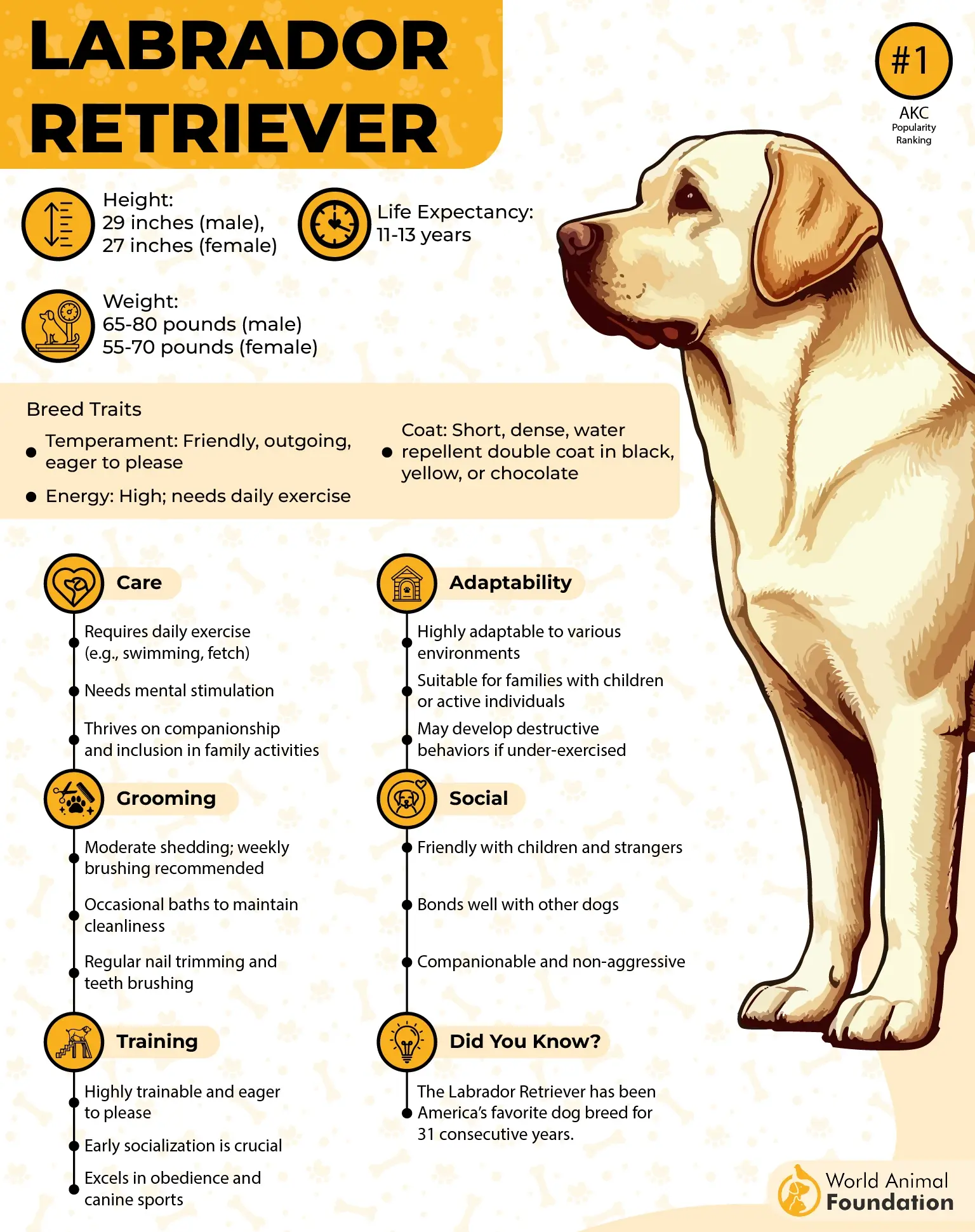
And let’s not ignore the power of touch. AKC states that Labradors are physically affectionate—leaning into you when you’re anxious, resting their head on your lap when they sense sadness, and sticking by your side like a warm, furry security blanket. They don’t ask; they just know.
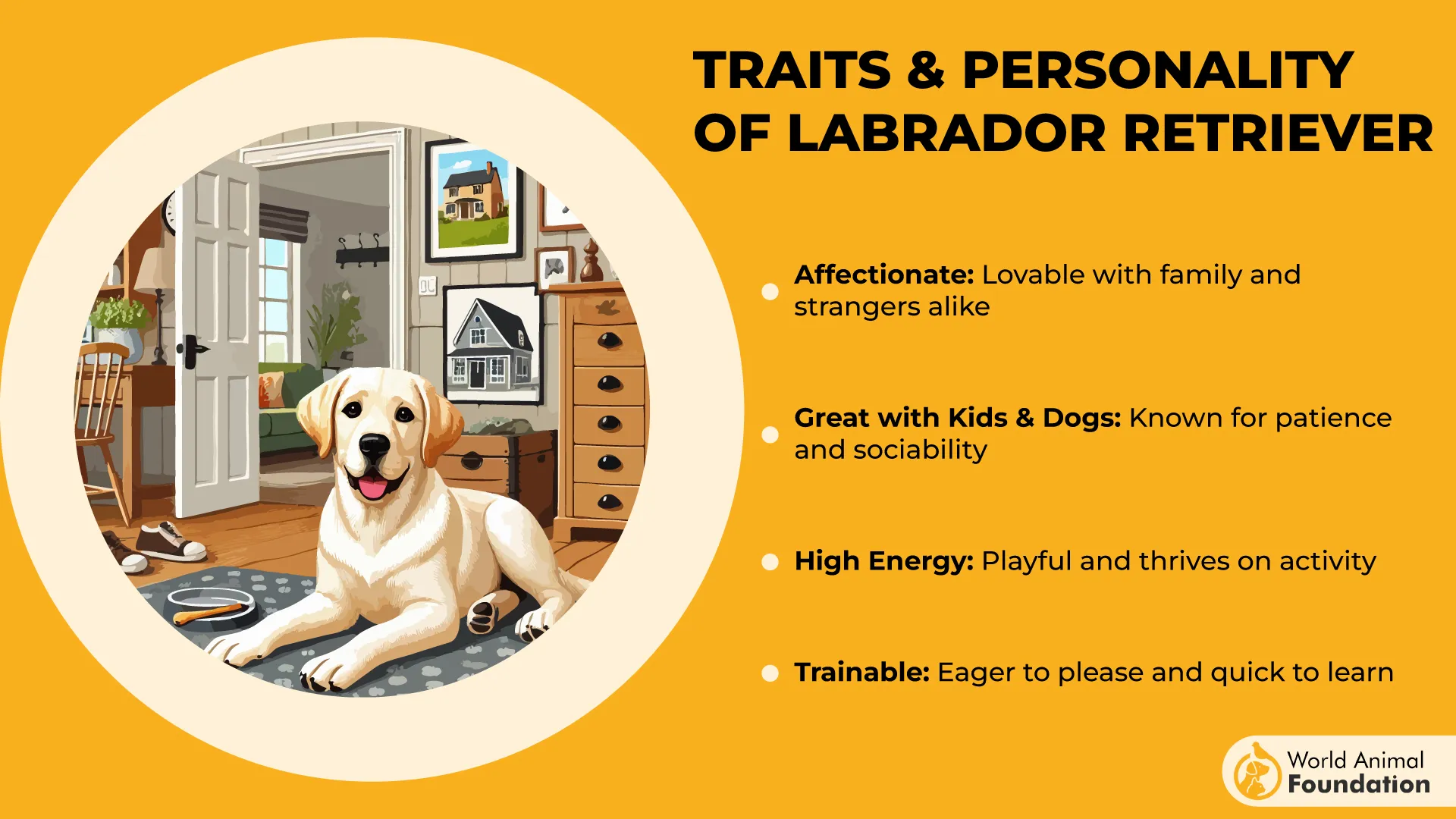
Unlike some breeds that get overstimulated in busy settings, Labs tend to stay calm and composed in public. Whether you’re at a crowded store, a therapy session, or just out for a walk, they handle environments with cool confidence—and that helps you feel safer and more in control.
Fun Fact: Labradors were originally bred as fishing helpers in Newfoundland—they used to haul nets and retrieve fish. Now? They mostly retrieve hearts.
3. Cavalier King Charles Spaniel

Cavalier King Charles Spaniel is a tiny therapist who just gets you—and also happens to be ridiculously cute. These gentle little lovebugs are experts at offering emotional comfort without saying a word. They’re soft, observant, and calm—like they were born with an inner peace most of us can only dream of. That calming energy is contagious.
Their biggest strength? Pure, undiluted affection. AKC says that Cavaliers are affectionate without being overwhelming. They don’t just sit near you—they melt into you. They’ll rest their head on your chest, lie quietly at your feet, or snuggle up with a look that says, “I’m here. You’re safe.”
They’re also fantastic listeners. No, they can’t give advice—but try venting to a Cavalier, and you’ll see what I mean. The way they hold eye contact, tilt their head, and stay present makes it feel like someone’s truly listening. Ever feel like no one gets it? This dog probably will.
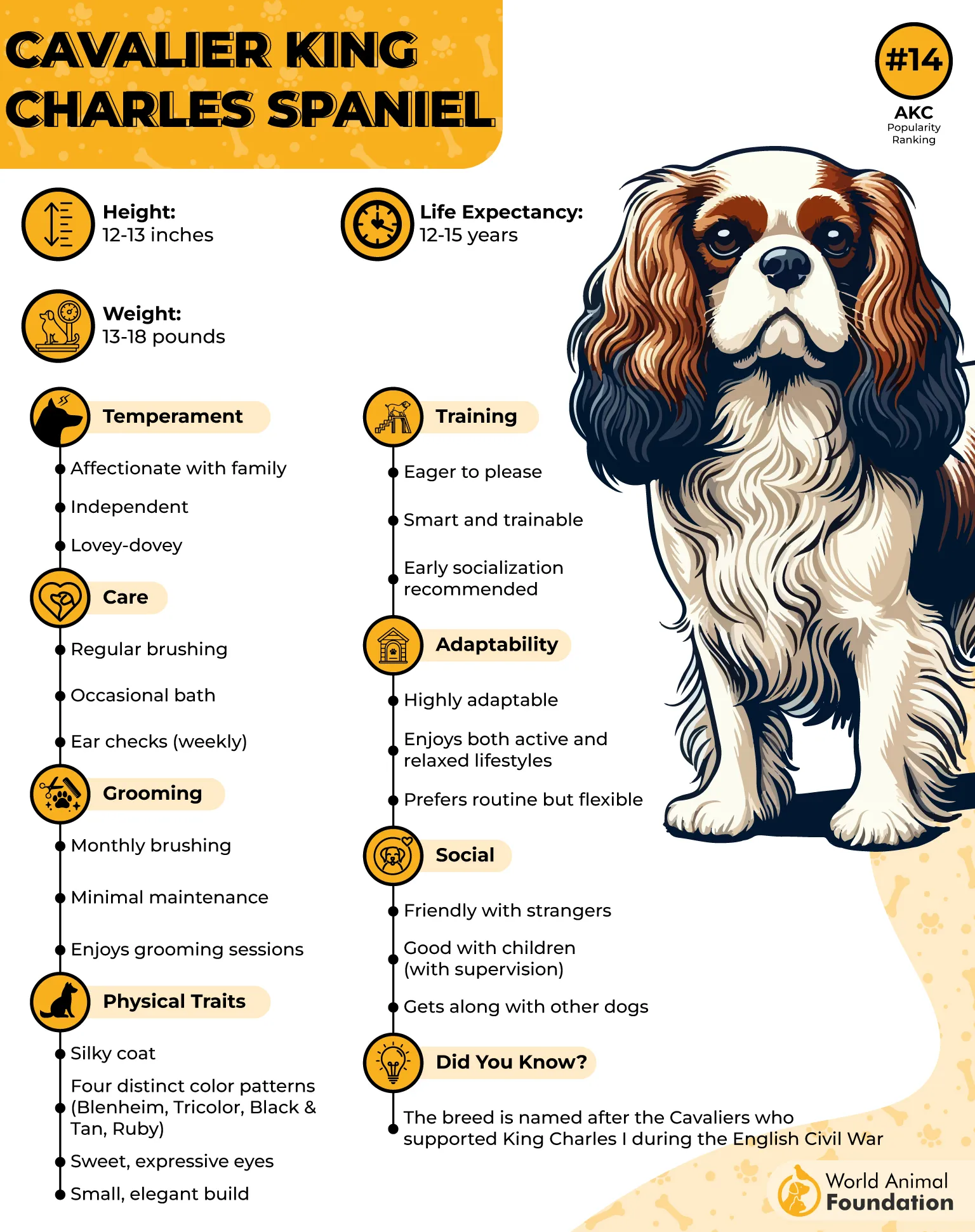
Because of their deeply empathetic nature, Cavaliers are perfect for people dealing with grief, depression, or chronic stress. They won’t try to distract you from your emotions—they’ll just sit with you in them. And sometimes, that quiet companionship is exactly what we need, right?
Another plus? They’re low-maintenance in the best way. Not too loud, not too needy, and not overly active. They love short walks, soft beds, and long cuddle sessions. If your emotional support needs involve staying close and grounded, a Cavalier fits the bill.
4. Poodle
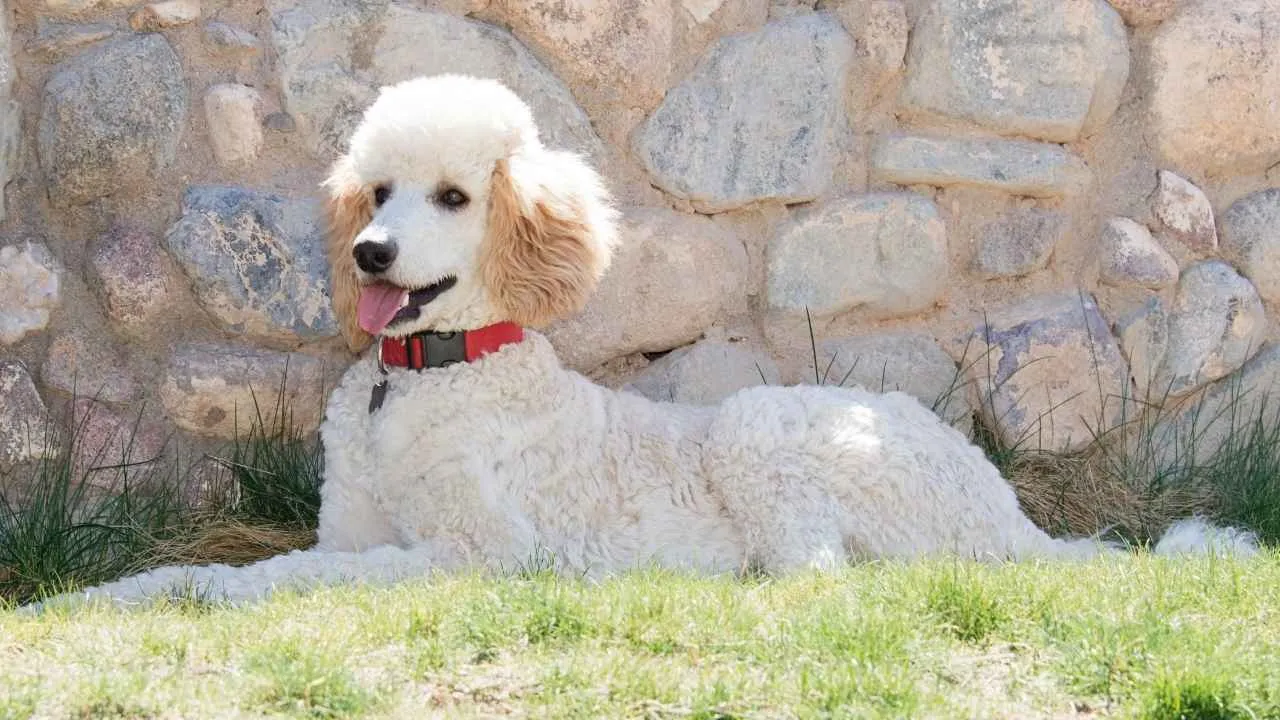
Poodles aren’t just fancy show dogs with designer haircuts. These dogs are emotional geniuses in disguise. Whether it’s a Standard, Miniature, or Toy Poodle, they’re insanely sharp, deeply loyal, and surprisingly in tune with your moods.
What really sets Poodles apart in the emotional support world is their sensitivity. They don’t just notice when you’re down—they react. You sigh, they move closer. You get tense, they nudge your hand. It’s like having a built-in emotional feedback system with a fluffy coat.
And yes, they’re one of the smartest dog breeds on the planet—but it’s not just about tricks. That intelligence makes them quick to pick up on emotional support cues, like nudging you during anxious fidgeting or curling up when it’s time to decompress. They don’t need repetition—they just get it.
Got sensory sensitivities? Poodles have one of the softest, most hypoallergenic coats out there. That means less dander, less shedding, and more soothing strokes. There’s something oddly calming about running your fingers through those curls. Ever tried it after a long day? Total reset.
Profile
They’re also great in public settings. Reddit states that Poodles are polite, calm, and usually unbothered by chaos. Whether you’re heading to a doctor’s office or a busy café, their composed presence makes those stressful environments way easier to handle. Who wouldn’t want that kind of backup?
5. Pug

Let’s be honest—there’s just something about a Pug’s wrinkly face and big, googly eyes that makes stress instantly vanish. They’re basically living antidepressants. These little charmers have a way of making you smile even on your worst days, without trying too hard.
Pugs are emotional sponges. They soak up your feelings like a napkin on a spilled latte. Sad? Anxious? Spiraling a bit? A Pug will stick to you like Velcro and stare at you like they’re reading your soul. They’re not just there for the cuddles—they get it.
One of their best traits? They’re pros at doing nothing—seriously. A lot of emotional support involves just being there, and Pugs have that part down to a science. They’ll snuggle beside you on the couch for hours, content to nap while you breathe through tough moments.
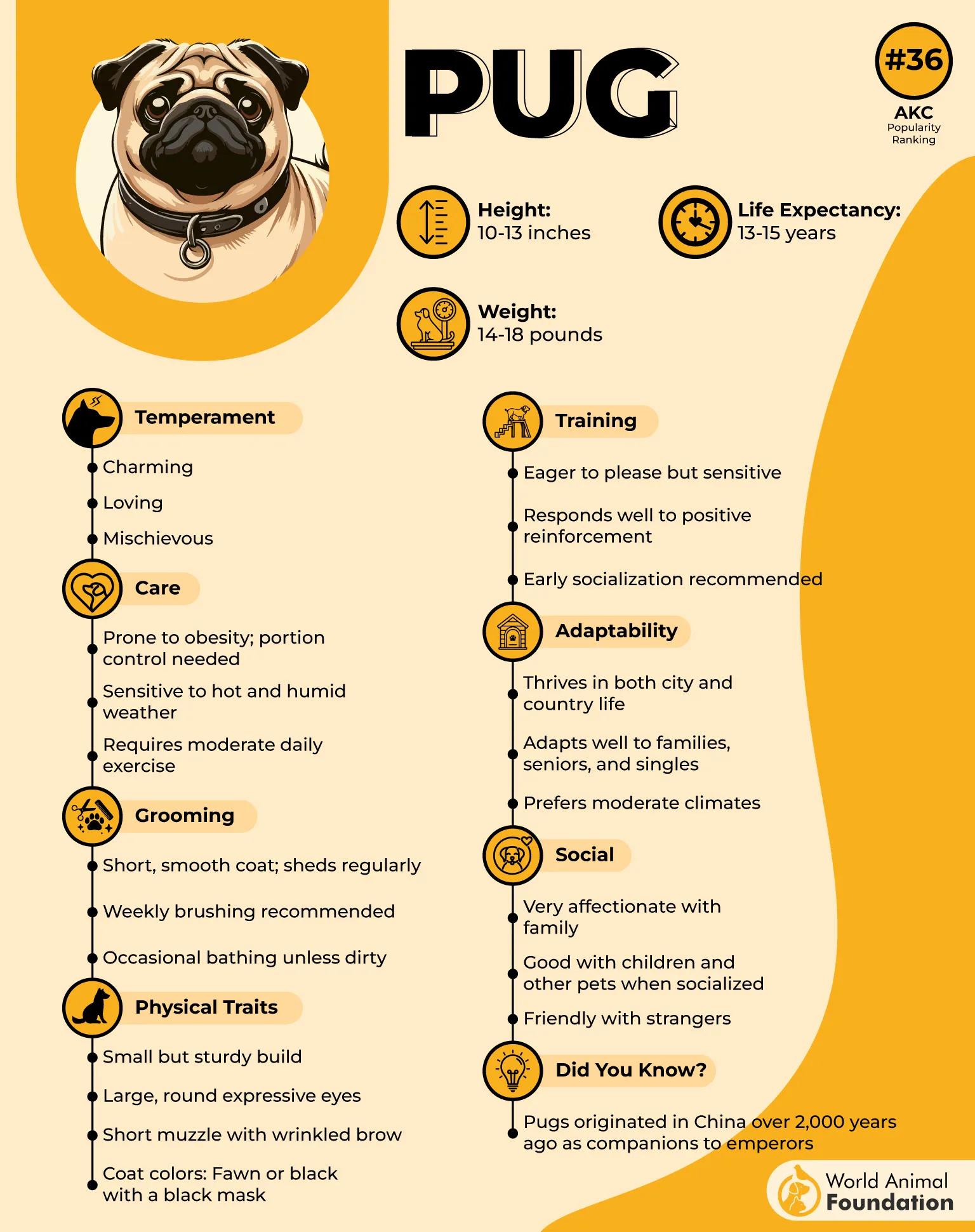
Pugs are fantastic for people who need emotional regulation but don’t have the energy for high-maintenance breeds. They’re sturdy enough to handle gentle pressure if you’re someone who benefits from grounding touch, yet small enough to climb right into your lap without crushing you.
Despite their lazy appearance, Pugs are super social. They love meeting people, soaking up affection, and being the center of your little world. And when you give them love back? Oh man—they light up like they just won the lottery. That kind of feedback loop is healing in itself.
6. Shih Tzu

Looking for a pint-sized emotional support sidekick that’s equal parts charm and comfort? The Shih Tzu is basically a living, breathing stress ball wrapped in fluff. These little companions aren’t just cute—they’re total mood boosters with personalities that shine in emotionally demanding situations.
Shih Tzu were literally bred to sit on royal laps in ancient China, so being close to their humans isn’t just a habit—it’s their entire purpose. They thrive on closeness, and you’ll often find them curling into your lap or resting their head on your chest like they know what’s going on inside.
Unlike more excitable toy breeds, Shih Tzu tend to be pretty chill, says Quora. They’re not the type to bark at every noise or freak out when the doorbell rings. That calm, soothing presence makes them perfect for people dealing with anxiety, especially in small apartments or tight indoor spaces.
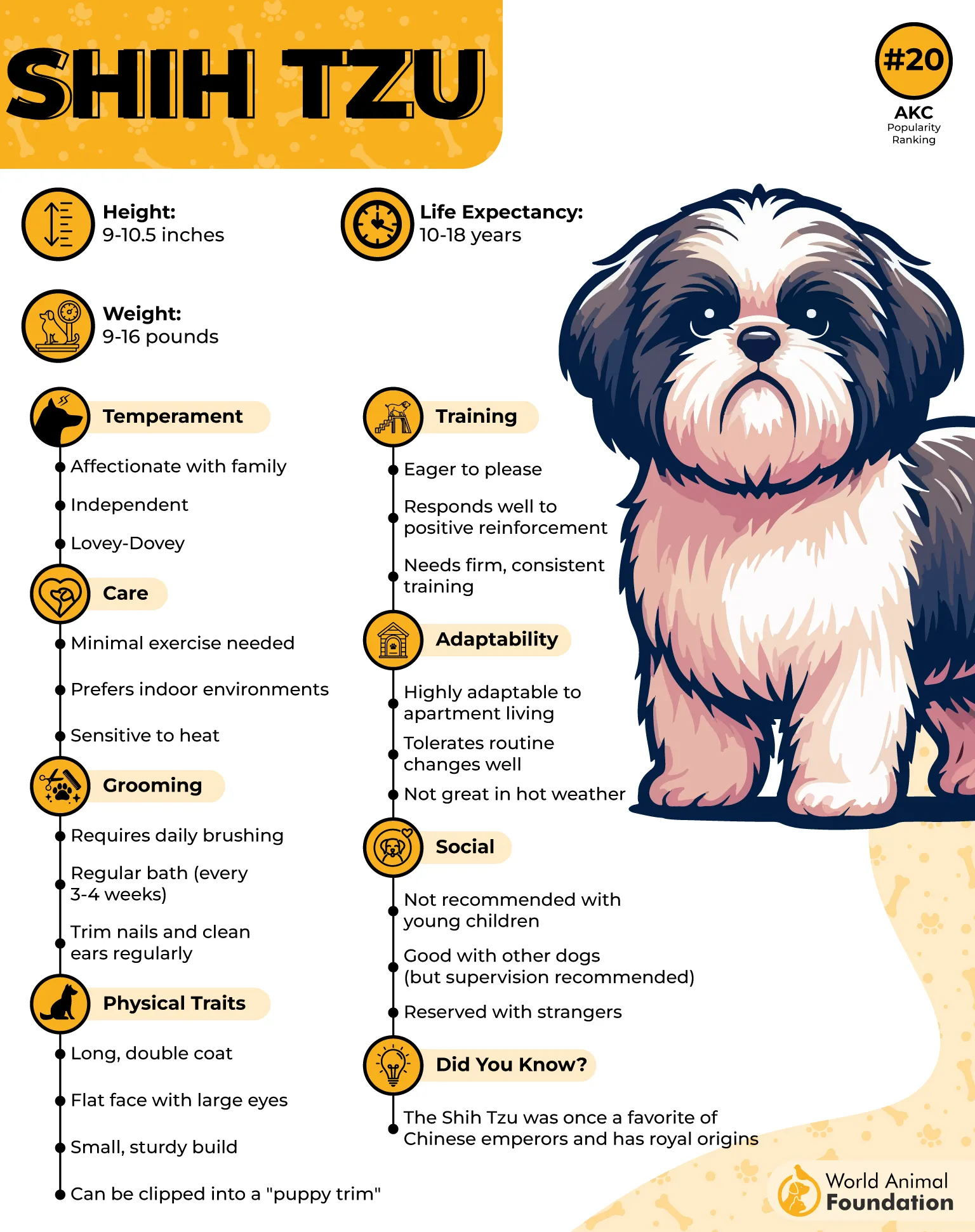
And can we talk about their emotional radar? Shih Tzu has a quiet way of showing support. They won’t demand attention, but they’ll always be there—silently watching, snuggling, and offering that soft, grounding energy that can melt anxiety like butter on toast.
They’re also great travel buddies. Whether you’re heading to a therapy session, riding public transit, or just grabbing a coffee, Shih Tzu are small enough to carry and calm enough to adapt. No chaotic tugging on the leash—just a fluffy little friend riding shotgun, keeping you steady.
7. German Shepherd
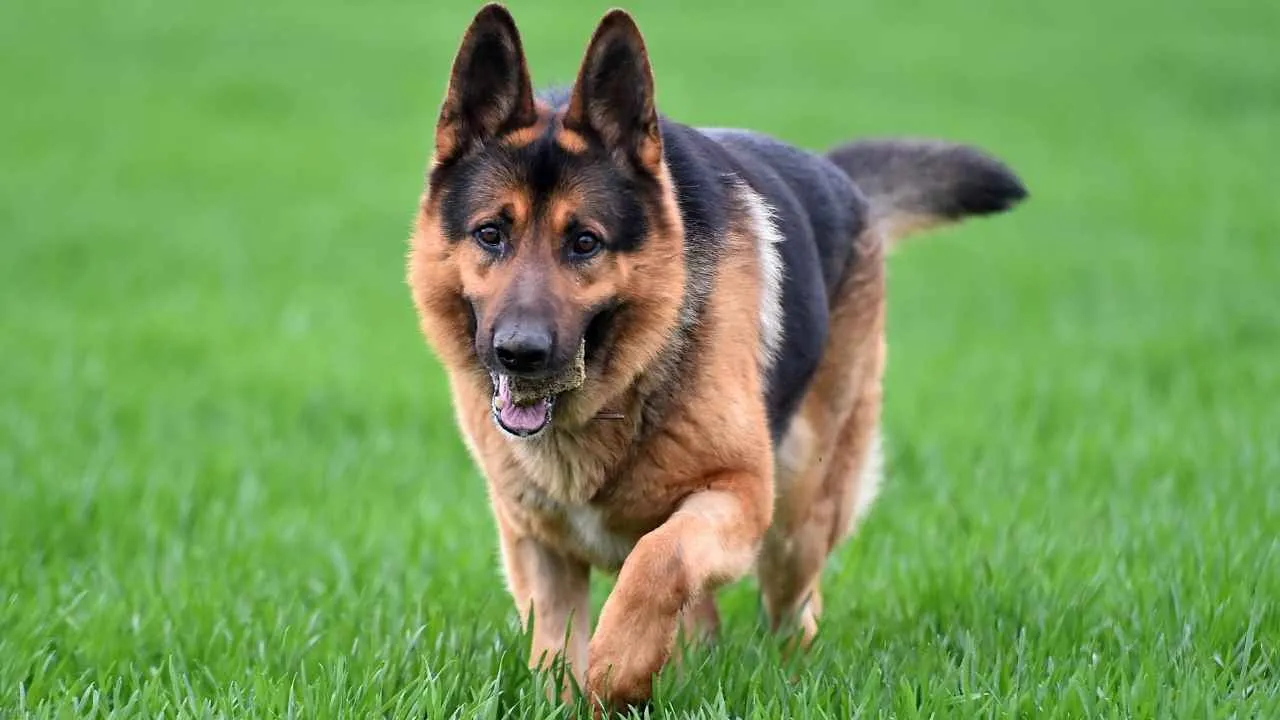
Let’s be real—when you think “emotional support dog,” a big, strong German Shepherd might not be the first thing that pops into your head. But hear this: these dogs are emotional ninjas. Behind that proud posture and alert gaze lies one of the most intuitive, loyal, and sensitive companions you could ever ask for.
German Shepherds are absolute masters at reading human emotions. Seriously, they can sense a shift in your tone, your energy, even the way you breathe. Feeling anxious or down? A German Shepherd will quietly nuzzle close, not in a needy way, but like, “Hey, I’ve got you.” That quiet confidence can be oddly reassuring when everything else feels out of control.
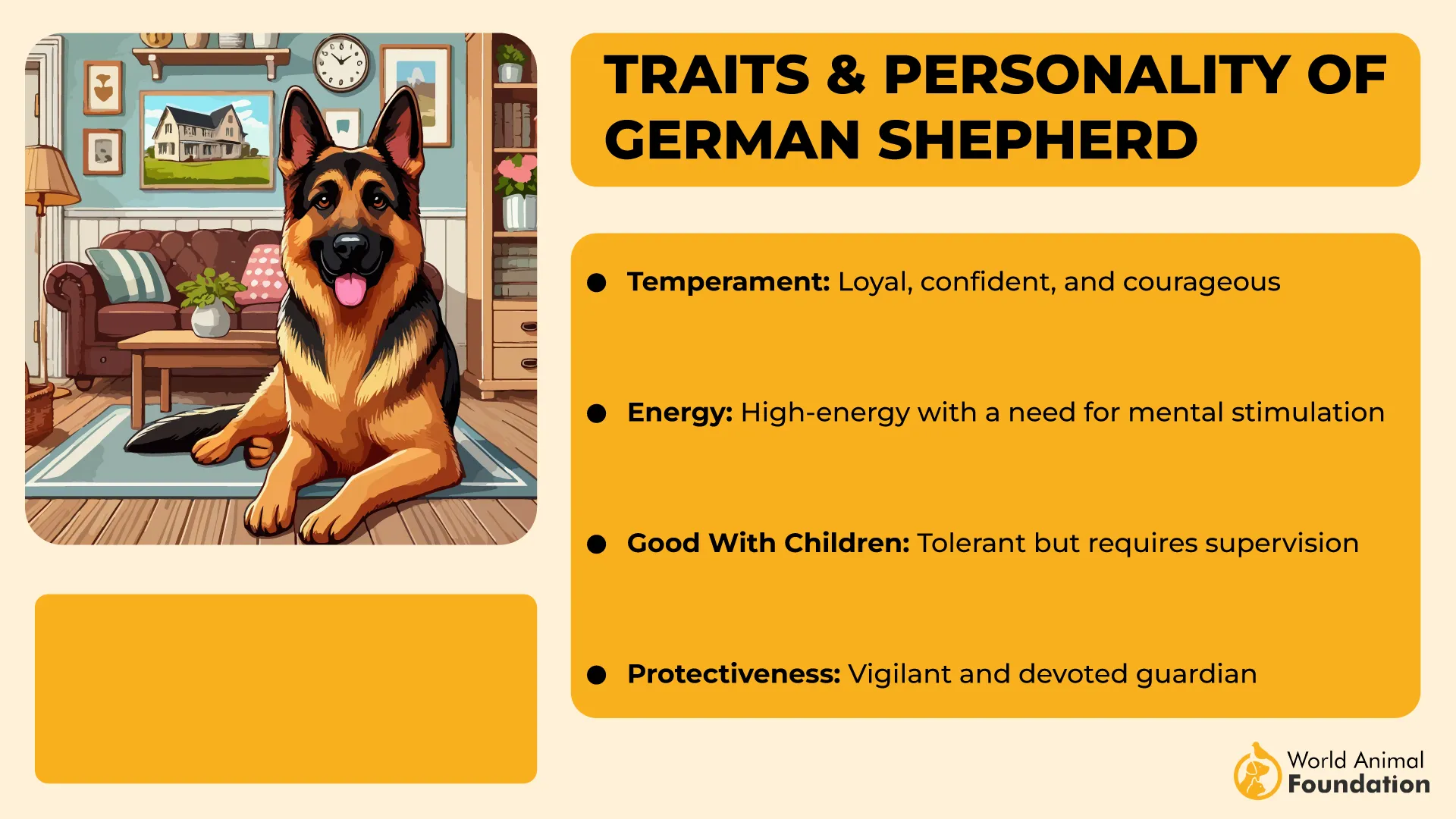
Their intelligence is off the charts, and it shows in how quickly they adapt to their humans’ needs. Many emotional support dogs are trained for specific cues, like deep pressure therapy or interrupting panic behaviors, and German Shepherds excel at this. They’re basically the A+ students of the canine world, and they actually like having a job to do.

Now, let’s talk loyalty—because wow. A German Shepherd doesn’t just bond with you; they attach. This dog becomes your shadow, your bodyguard, your constant emotional mirror. It’s like having your own personal protector who also moonlights as a therapist.
One of the best things? They’re super consistent, says Reddit. With many breeds, you’ll get mood swings or bouts of stubbornness, but not with a well-trained German Shepherd. These dogs thrive on structure, and that reliability can be a huge comfort when your emotions feel unpredictable.
They’re also incredible with routine—something that can be essential for folks dealing with anxiety or PTSD. Need a dog that wakes up, checks in with you, and sticks to your rhythm without constant reminders? This is your go-to breed. Bonus: They love learning, so even complex emotional support training feels like playtime to them.
Fun Fact: German Shepherds were among the first service dogs ever used in the U.S., originally helping soldiers after World War I—talk about emotional backup with a history!
Conclusion
When it comes to emotional support, not just any pet will do. The best emotional support dogs are chosen with care because certain breeds have an innate ability to sense our moods, reduce stress, and offer real comfort. Breeds like Labrador Retrievers, Golden Retrievers, and the Cavalier King Charles Spaniel are widely recognized as excellent emotional support animals thanks to their gentle nature, calming presence, and unwavering loyalty. These compassionate dogs provide not only companionship but also support during panic attacks, low moods, or daily struggles tied to mental health conditions. Whether you’re dealing with anxiety levels, post-traumatic stress disorder, or other challenges, the right support dog can transform your emotional world.
Living in smaller spaces? No problem. Many support dog breeds are great for apartment dwellers, offering just the right energy level to stay balanced indoors while still needing enough physical and mental stimulation to keep them mentally stimulated and happy. Even poodles, Shih Tzus, Yorkshire Terriers, and Boston Terriers make great ESA dogs in the right environment. From working dogs and herding dogs to lapdogs with high-maintenance coats or white markings, each specific dog has something special to offer. And while some may require more grooming or physical disabilities support, others thrive purely as companion dogs providing emotional reassurance and steady affection through their expressive eyes, wagging tails, and deep, strong bonds with their owners.
According to federal law, the Fair Housing Act protects people with emotional support animals—meaning, with a valid ESA letter from a licensed mental health professional, you have the same rights as someone with a service dog in terms of living arrangements. That includes exemption from pet rent and protection from breed or size restrictions. It’s worth noting that specific training is not required for ESAs, but pet ownership still comes with responsibility. So, whether you’re drawn to standard poodles, Irish Wolfhounds, or other breeds, make sure you choose the right breed—one that matches your lifestyle, emotional needs, and living setup. After all, the positive effect of the right dog is real, and when you’re wrapped in unconditional love, it feels like you’ve found your safest place on earth.


